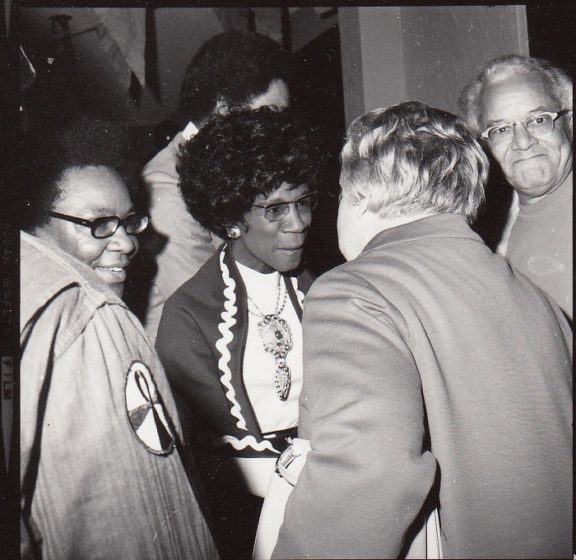The Rainbow Sign’s commitment to promoting Black political power is clearly evident in this collection of images from an event honoring Shirley Chisholm in 1971 leading up to the first Black congresswoman’s bid for the Democratic presidential nomination in 1972. Chisholm and other Black politicians such as California Congressman and future Oakland mayor Ron Dellums (pictured second column, third image down) were partly the result of a broad shift in Black political consciousness away from self-determination and direct action and toward a struggle to insert Black people into positions of power at every level of governance in order to change the system from the inside. Despite this ‘mainstreaming’ of Black politics, strains of Black Nationalism remained influential for such initiatives throughout the 70s, visible in clothing and hairstyles as well as in the sense of common cause and nation-building between Black political leaders across the country and, indeed, across the globe.
In this context, Rainbow Sign’s programming and philosophy are both completely in step with this narrative in the sense of promoting cultural pride, Pan-African consciousness and Black political leadership and yet also ruptures the narrative in important ways. By carrying out Mary Ann Pollar’s belief that Black people’s strength resided in radical hospitality, Rainbow Sign modeled a Black politics based on care for the “other” that lasted throughout a decade too often characterized solely by either “movin’ on up” middle class uplift or else by the violent repression, in-fighting and paranoia that stymied so many radical Black organizations.
